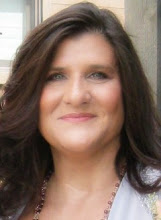 |
| Source: Bored Panda |
If handled properly, humor can be utilized in any genre. Let's explore a few examples.
In a Comedy, the plot thrives on the writer's ability to be funny. They must master plant and pay off. They learn to set up the joke, stretch it, then drive the punch line home or twist it. Rhythm is critical. It can't be one continuous joke or gag. It is important to know how to reign in the humor when needed.
Con, Heist, and Prison Break stories have moments of great tension during attempts to achieve the plot goal. A few funny lines can break up the tension after a near miss or a play gone wrong. The main character or one of the secondary characters can be a smart aleck.
In Fantasy, there is room for funny creatures or snarky magical sidekicks to provide comic relief. Attempts to solve the problem can go hilariously wrong whether they are magical spells that fail or actions that land the characters in a smelly bog.
The Gothic genre is the least suited to humorous intrusions. It is crucial to keep the gloomy, eerie setting intact. However, there is room for a protagonist's muttered comments or interior narration as she navigates her new home and meets the strange inhabitants.
In Horror, as mentioned above, humor can be injected to release built-up tension. Tone matters. If your story is a serious confrontation with evil, humor may not be appropriate. For example, the movie The Exorcist had no room for funny lines. Stephen King is a master of mixing humor with horror.
Historical stories also have room for snarky characters depending on the tone of the story. I recently watched a series called Hell on Wheels about the building of the transcontinental railroad. The main character was a confederate soldier and man of few words. He remained stoic in most situations, but occasionally he'd enter the fray with a refrain of "Well, shit."
In a Literary drama for example, there are people weeping at a funeral, but someone gets the giggles or the orator says something about the deceased that strikes the audience as funny. A character can use humor to deliver a truth no one else wants to acknowledge.
With Mystery it really depends on the subgenre and topic. In an intense police procedural searching for a rapist or serial killer, humor might be out of place. In a cozy murder mystery, the investigator might see the humor in the quirky denizens and vagaries of small town life. The tone in cozies is light and a natural fit for humor.
In Romance, a shared sense of humor can bring the couple closer together. It feels good when someone "gets" you. And a partner who can laugh with you through life's travails is one worth keeping. But the character should never be cruel or make their partner the butt of jokes. That's not funny.
Science Fiction is another genre ripe for a snarky protagonist or side kick, rogue robots, and humorous situations with malfunctioning tech. Again, it comes down to how serious the tone is.
Thriller and Suspense is another iffy category based on tone. One liners to break tension may be appropriate. If the tone is light enough, sarcastic characters or humorous observations may also fit the plot. Characters often banter with their partners and coworkers to lighten the mood while working on intense cases.
Westerns are generally played straight and serious, but not always. In a shootout, the protagonist and antagonist could exchange humorous insults. A gun could misfire or a shooter miss resulting in a funny catastrophe. A pioneer might rely on humor to survive the punishing conditions. The settlers might find moments of humor amid the drudgery.
When critique partners or beta readers run through your manuscript, have them mark places where they laughed. Make sure you wanted them to find that passage funny. If you thought something was funny but it missed the mark, revise it.
Further reading:
What is Tone?
Examples of Tone
Watch That Tone
Injecting Humor
Humor, Satire, and Wit
Diana Hurwitz is the author of Story Building Blocks: The Four Layers of Conflict, Story Building Blocks II: Crafting Believable Conflict, Story Building Blocks III: The Revision Layers, and the YA adventure series Mythikas Island. Her weekly blog, Game On: Crafting Believable Conflict explores how characters behave and misbehave. Visit DianaHurwitz.com for more information and free writing tools. You can follow her on Facebook and Twitter.
|



Some of the best humor lines in a western come during the episodes of "Deadwood," a series that focuses on the brutality and hardness of the old West. Another example of this kind of humor can be found in Fargo. I wish I could master that type of humor!
ReplyDeleteThis is a great post, Diana. I would never have considered adding humor in some of the genres you mentioned, but you made me rethink how it could work if properly done. Thank you. :-)
ReplyDeleteSo right, Diana. I would rarely choose to watch or read something categorized as "Comedy", but I do love well-placed humour in the genres that I enjoy.
ReplyDeleteHorror and humour are a brilliant mix. I love Stephen King's dark humour.
ReplyDeletehttps://annabellefranklinauthor.wordpress.com/